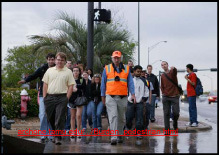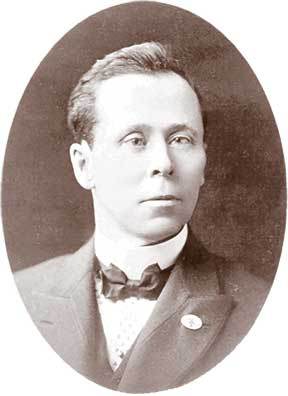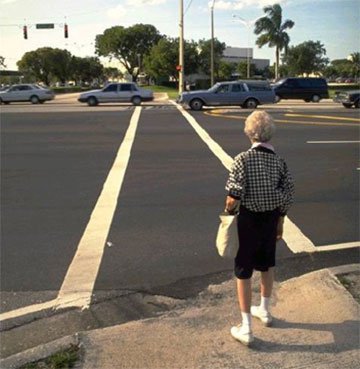You are currently browsing the monthly archive for June 2009.
July 6 - 17th, 2009
 Michigan Department of Transportation, in collaboration with Michigan State Housing Development Authority, Michigan Department of Environmental Quality and Michigan Department of Community Health, is pleased to offer the opportunity for you to attend a walkability audit in a Cool City, City of Promise, Port City and/or a Building Healthy Community near you.
Michigan Department of Transportation, in collaboration with Michigan State Housing Development Authority, Michigan Department of Environmental Quality and Michigan Department of Community Health, is pleased to offer the opportunity for you to attend a walkability audit in a Cool City, City of Promise, Port City and/or a Building Healthy Community near you.
Read the rest of this entry »
Lack of funding leads to destruction of Montcalm County roads
A YouTube video released today documents the intentional pulverization of paved roadways in Montcalm County. Faced with dwindling funds for road maintenance, many Michigan counties are being forced to replace paved roads with gravel.
While many Michigan roads are certainly in need of repair, it would be irresponsible to consider a road “fixed” until it is “complete,” meaning it accomodates all modes of transportation including pedestrians, bicyclists, transit users and those with disabilities - not just cars.
When incorporated into the original design of a roadway, Complete Streets practices often cost little extra to implement. Advocates for Complete Streets need to reframe the issue of cost into an issue of value. We must start placing value on the proper construction and maintenance of the entire right of way, not just the number of miles of paved travel lanes. This means that the many engineers, planners and politicians who have ignored the needs of the 1/3 of Americans who do not drive will have to stop treating bicyclists, pedestrians, transit users and those using mobility aides as second class citizens. Placing emphasis on value may indeed mean that communities might have to repave a few less miles of road each year and use those savings to make the roadways that they do “fix” complete.
Learn more about the costs of Complete Streets at:
http://www.completestreets.org/complete-streets-fundamentals/factsheets/costs/
Michigan needs great, walkable, urban places if it is to mount a serious economic recovery.
This is a refreshingly simple message, and one embraced by places like Chicago and Pittsburgh. But it has been a tough sell in Michigan.
The importance of the “built environment” – how and where residential housing, transportation infrastructure and commercial investment lands in our communities – has historically not been part of Michigan’s economic development strategy.
Read the rest of this entry »
Complete the Streets
Action
The League of Michigan Bicyclists (LMB) asks the State of Michigan to:
- Design and build State roadways to accommodate all public right-of-way users safely, including bicyclists, pedestrians, people with mobility aids, motorists, and transit users of all ages and abilities.
- Require all MDOT employees involved in planning, design, construction, maintenance and operation of the State transportation system to consider fully the needs of non-motorized travelers.
- Require all recipients of Act 51 Funds to adhere to the state’s “Complete Streets” policy (see first bullet, above). Read the rest of this entry »

Horatio Sawyer Earle (1855–1935) is known as the "Father of Good Roads" or simply Horatio "Good Roads" Earle.
How Michigan bicyclists paved the first road in America
The Good Roads Movement, led by the “Father of Good Roads,” Michigan’s own Horatio Earle, demanded better road conditions for the growing community of cyclists across the country.
The boom of the bicycle as an object of pleasure and a symbol of progress resulted in a natural desire by bicyclists for smooth, safe roads to ride upon. This led to organized efforts to clear the roads of mud, horse droppings, and hazards like crumbling cobblestones and an unpredictable crisscross of streetcar tracks.
The Good Roads Movement banded millions of American bicyclists together at demonstrations, rallies and other political actions. With a motto of, “Where there is a wheel, there is a way,” cyclists took their campaign for better streets to the streets, quickly gaining the ears of politicians across the nation. In fact, many of those cycling advocates successfully ran for elected office themselves on platforms focused on better road conditions.
Read the rest of this entry »
A COMPREHENSIVE STRATEGY FOR FULLY FUNDING MICHIGAN’S TRANSPORTATION SYSTEM IN THE 21ST CENTURY
The state of Michigan’s crumbling infrastructure is so bad, even Hollywood has taken notice. Tonight at 9 p.m., The History Channel will air The Crumbling of America, which explores the state of the nation’s highways, bridges, water and sewage systems, and more.
The Crumbling of America explores the nation’s infrastructure problems using expert interviews, on location shooting and computer generated animation to illustrate the kinds of infrastructure disasters that could be just around the bend. Read the rest of this entry »

Wide streets, even with crosswalks and signals, are intimidating to older persons and can make it hard for seniors to even see the walk signal. Refuge medians that allow people to cross one direction of traffic at a time make it much easier for slower pedestrians to get around.

Wide streets, even with crosswalks and signals, are intimidating to older persons and can make it hard for seniors to even see the walk signal. Refuge medians that allow people to cross one direction of traffic at a time make it much easier for slower pedestrians to get around.
Report shows need to do more for pedestrians
Many of Michigan’s roads are getting in our way. They lack sidewalks, and too many crosswalks require a daunting six-lane sprint. Bus stops are nothing more than poles in the grass.

Rep. Jon Switalski (D - Warren) Pushes For Complete Streets in Michigan
LANSING, MI – June 18, 2009 – Representative Jon Switalski introduced Complete Streets language to the House version of the transportation bill this morning. With little debate, the House Transportation Appropriations Subcommittee passed Section 399 of Senate Bill No. 254 H-1. The substitute language states, “The department [MDOT] and local road agencies that receive appropriations under this act shall adopt complete street policies.” (See complete language below)
Today’s passage marks the first efforts by the Michigan Legislator to adopt a statewide Complete Streets policy to build and maintain roadways that accommodate all roadway users “particularly public transit users, bicyclists, pedestrians (including individuals of all ages and individuals with mobility, sensory, neurological, or hidden disabilities), and motorists, to enable all travelers to use the roadway safely and efficiently.”
Read the rest of this entry »















